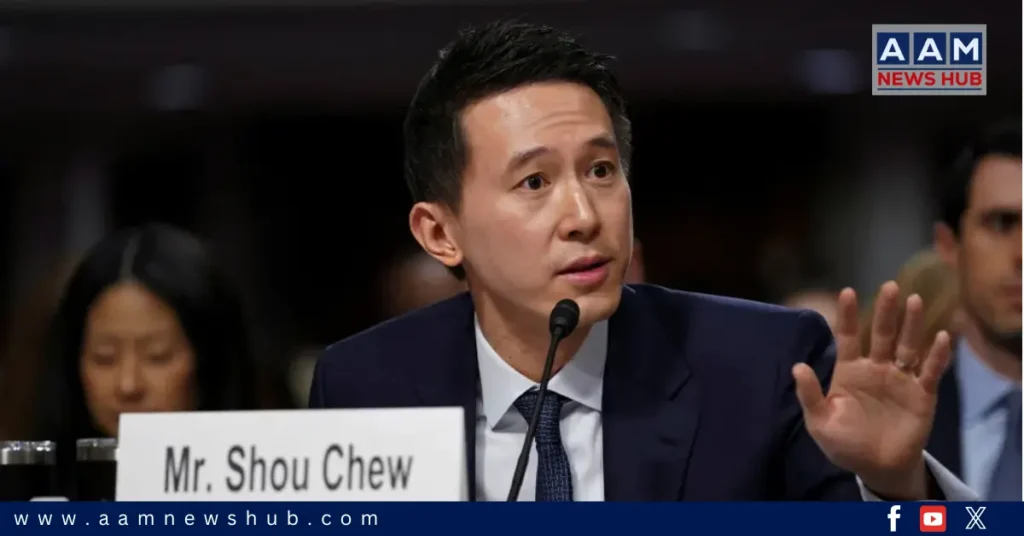TikTok’s owner company refuses to sell TikTok

TikTok's owner company refuses to sell the app.
ByteDance, the Chinese owner of TikTok, says it has no plans to sell the popular video app in the United States or to sell the company after a law banning it is passed in the United States. “ByteDance has no intention of selling TikTok,” the company posted on its official account on the social media platform Twitter. Earlier this week, TikTok said it would challenge the ‘unconstitutional’ law in court. ByteDance’s statement comes in response to an article by the technology industry website The Information, which is looking into a possible sale of TikTok’s U.S. operations without its key algorithms.
The company said in the post that foreign media reports of ByteDance selling TikTok were not true; the post also included a screenshot of the article stamped with ‘False Rumor’ in Chinese characters. If the Chinese owner of TalkTalk does not sell it, the bill will almost disappear in the United States after the Senate approves the bill. The video-sharing app has millions of users worldwide but has faced growing questions over the security of user data and its ties to the government in Beijing.
The U.S. The House of Representatives and Senate have now passed legislation that would, among other things, force the company that owns the platform to end its powers. President Joe Biden has indicated he will sign the proposed ban. Lawmakers from both major US parties have called for a ban on ByteDance unless it sells the app to a non-Chinese company. They fear the Chinese government could force ByteDance to hand over the data of TikTok’s 170 million U.S. users. TikTok insists it will not provide data on foreign users to the Chinese government. On April 21 this year, House lawmakers approved a $95 billion (£76 billion) foreign aid bill with funds for Ukraine, Israel, and Taiwan, which also cleared the way for the forced sale of TikTok.
Also Read: Pakistan develops App for young people with disabilities
The Senate then approved the legislation on April 23, and it will now be sent to President Biden for his signature. This is not the first time that U.S. authorities have expressed concerns about TikTok. Former U.S. President Donald Trump also tried to ban the app during his presidency in 2020. But Trump, now the Republican nominee for president in 2024, has criticized the new legislation. He says that bans on TikTok will benefit Facebook. Even after President Biden signs the bill, the ban on the app won’t go into effect immediately. In fact, it could be years before Americans lose access to the app, as ByteDance plans to go to the Supreme Court to stop the forced sale. The legislation also gives ByteDance nine months to sell its app to any U.S. buyer, with an additional three-month grace period before the ban takes effect. That means the sale deadline would be sometime in 2025 after the winner of the 2024 presidential election takes office. If Trump wins, he could try to block the ban from taking effect.
The most straightforward way for the U.S. to ban TikTok would be to remove it from Apple and Google’s app stores. A mobile phone user clicks to download the TikTok app. Most users download apps from app stores on their smartphones and tablets, so this ban will prevent new users from downloading TikTok. This means that people who already have the app won’t be able to get future updates designed to improve security or fix bugs. This U.S. bill prevents applications controlled by anti-US countries from being used and updated in the U.S. It gives the U.S. president broad powers to restrict apps with ties to Russia, China, Iran, and North Korea. TikTok has strongly criticized the proposed legislation, calling it an insult to the American right to free speech.
Chief Executive Xu Zhiqi warned that the bill would “make a handful of other social media companies more powerful” and put thousands of Americans’ jobs at risk. ByteDance would have to get approval from Chinese authorities to sell TikTok, but Beijing has vowed to oppose any such move. Even in the U.S., some TikTok content creators and users have criticized the proposed ban. Tiffany Yu, a young Los Angeles resident who spoke to the BBC during a protest outside the White House, said that TikTok was essential to her charity work. She works on the issues of disabled people.
It should be noted that TikTok has asked its 170 million users in the U.S. to contact their political representatives about not supporting the bill. However, phone calls made by TikTok users to U.S. politicians and members of the House of Representatives may have the opposite effect. A number of U.S. politicians say the campaign has raised their concerns about TikTok, and there are now more.




